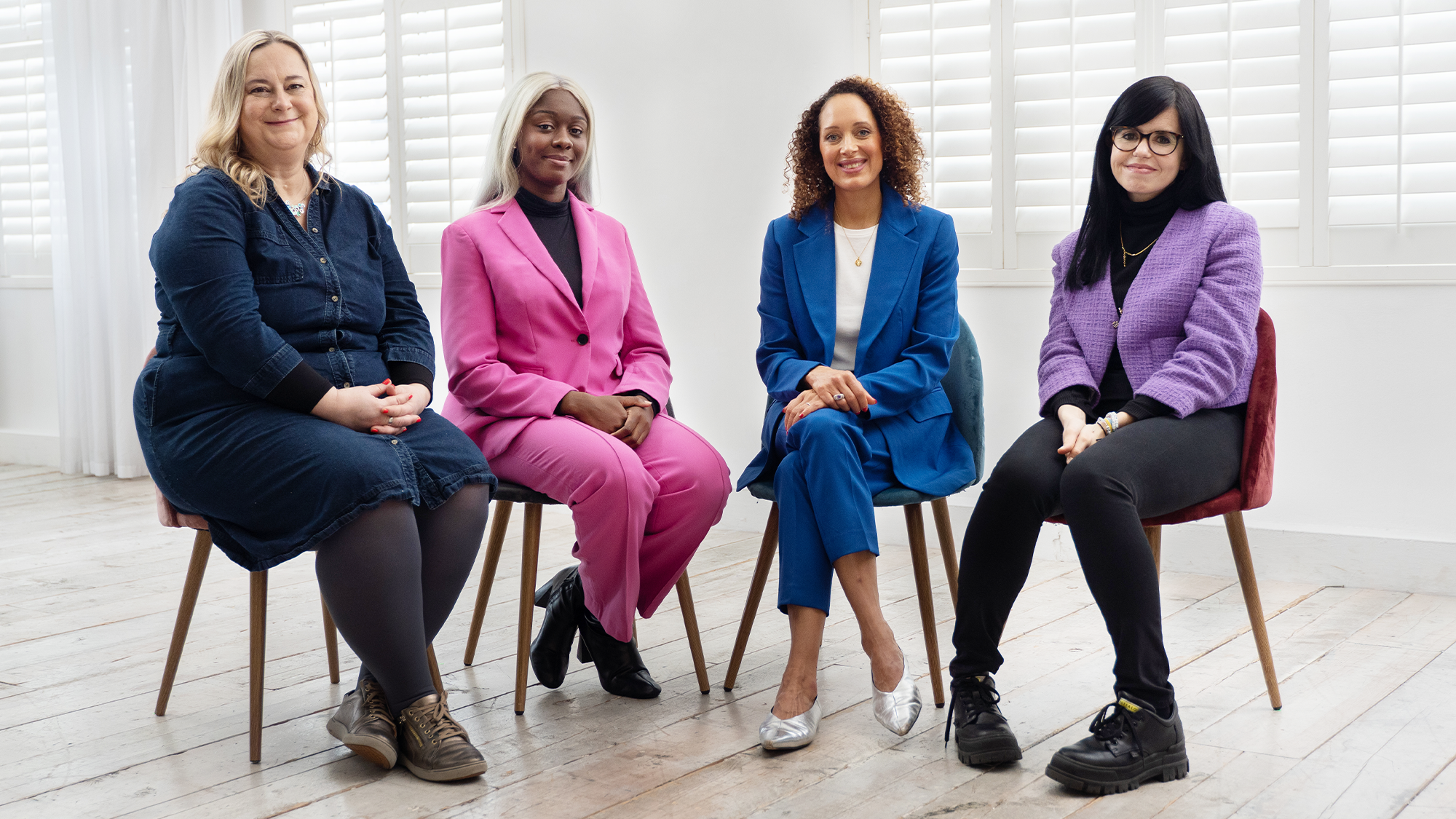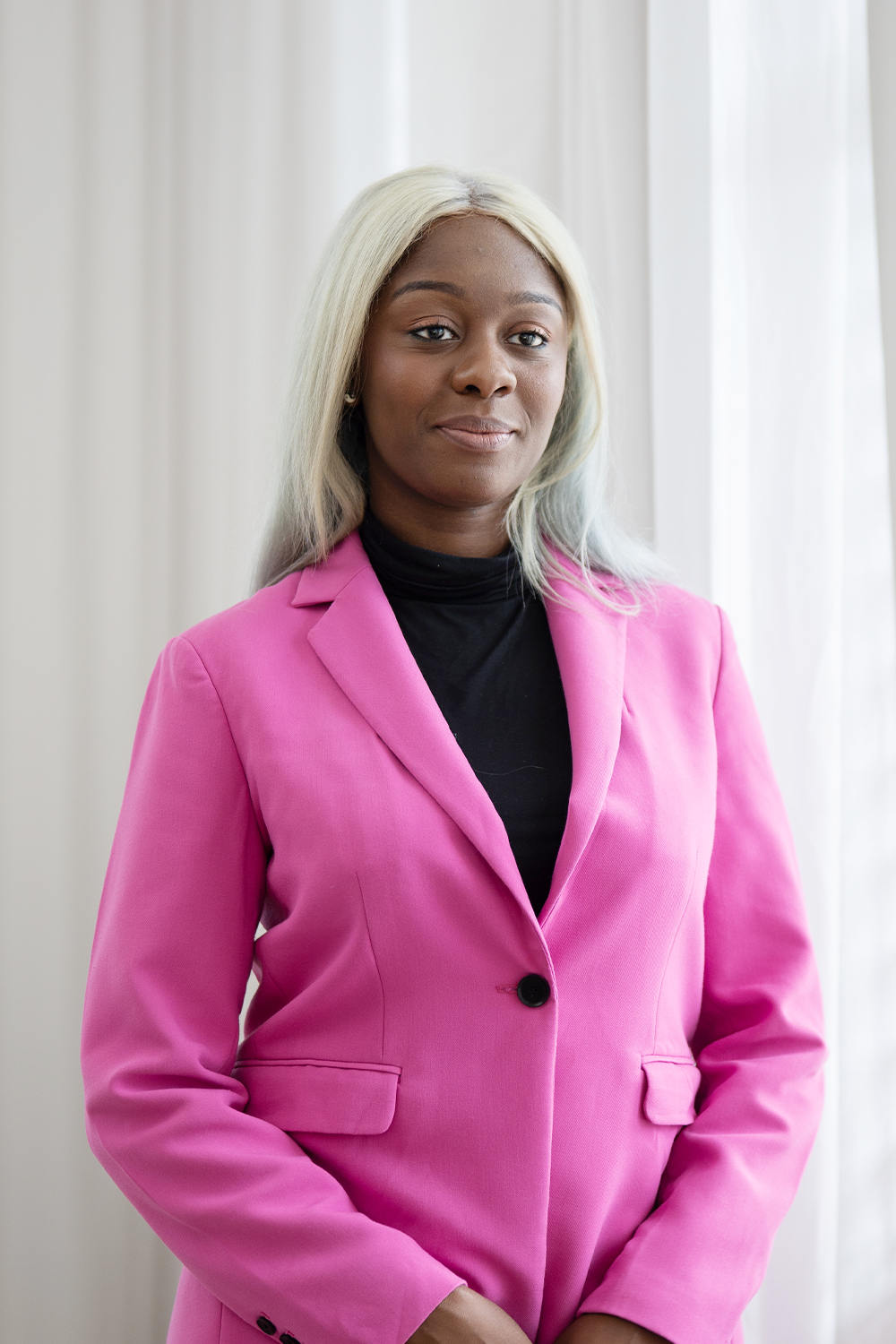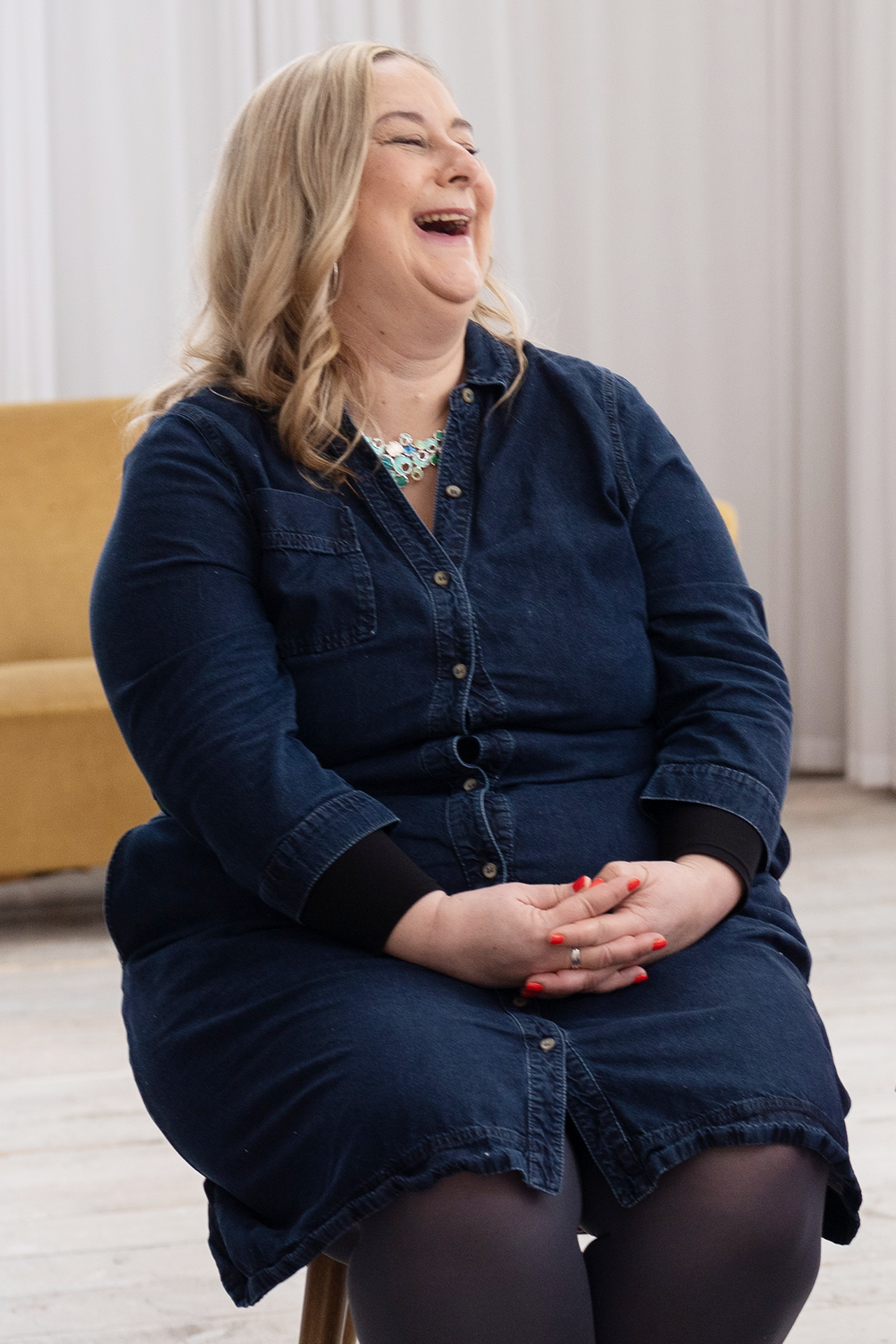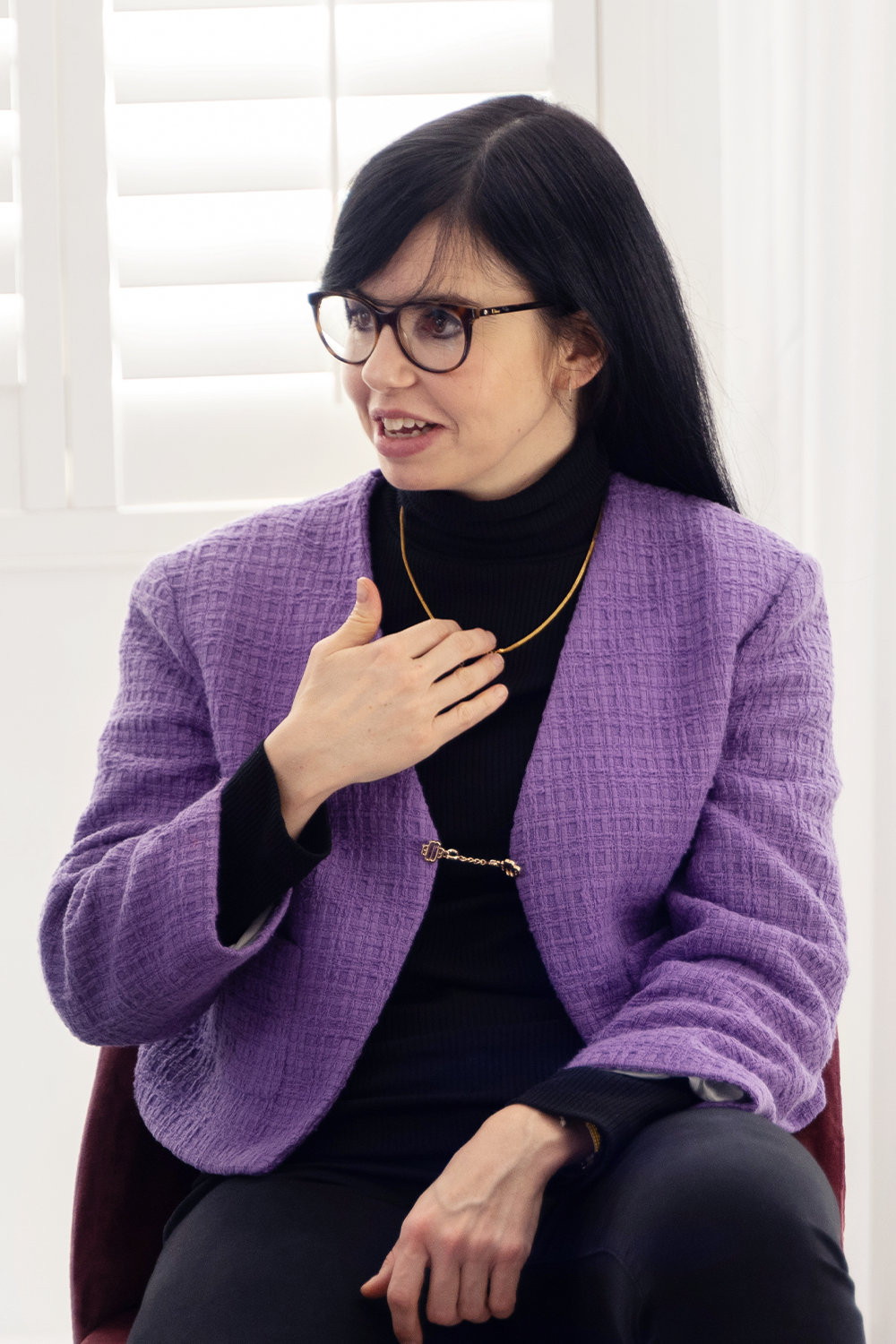
From inspirational interviews to essential careers advice, Marie Claire is committed to championing women’s equality year-round. But there is one particularly special date in team MC’s diary that we look forward to every year without fail: International Women’s Day.
A day to celebrate how far we’ve come while reflecting on how far we still have to travel, this year’s International Women’s Day theme is Inspire Inclusion – a message we’ve been getting behind since we launched in the 80s.
To mark this special day and never more necessary theme, we’ve partnered with L'Oréal Groupe to elevate the voices of women in STEM, an area where women continue to be vastly underrepresented. As the #1 global beauty player with 37 international brands, L’Oréal Groupe employs over 4,000 scientists - 69% of which are female. It has also been recognising exceptional female STEM talent for over 25 years through its L’Oréal-UNESCO For Women In Science programme.
Women make up less than a third of the UK STEM workforce, and recognition of women’s achievements in the field is minimal, with less than four percent of Nobel Prizes for science having ever been awarded to women.
This is hardly surprising when you look at a recent UK survey from L’Oréal and YouGov, which found that unlike their male peers, girls experience a drop in confidence in science and maths subjects between the ages of 11 and 13.
So how do we shift the dial?
Well, it’s not all bad. The study also found that girls in school years six to eight who know an adult who works in a science or maths job are 75 percent more likely to be confident in studying science than those who don’t. In short, role models matter.
Which is why this IWD, Marie Claire Editor-in-Chief Andrea Thompson gathered together a stellar panel featuring leading lights from the world of science and technology to discuss the topic. Here are some of the key takeaways.
STEM careers start at home
“When I was younger, the toaster would go astray, the kettle would go missing and I'd be in my room tinkering with them and trying to de-engineer them,” robotics engineer Eneni Bambara-Abban told Thompson. But it was a doll that could walk and talk that acted as the catalyst for her future career. “This was the nineties, and a doll that was black was itself quite a rarity,” she added. “But it being able to walk and talk and having hair like mine – it was like, ‘what is this inanimate object and how can I make the same thing?’”

It’s important that these early explorations are supported, said Katherine Mathieson, Director of scientific education and research charity the Royal Institution. “That sense of having a community around you is really important, particularly for girls and young women or for people from marginalised communities,” she said. “This thing of having confidence instilled in you from a young age is really crucial.”
Physicist Dr Jess Wade, who lectures in functional materials at Imperial College London, is case in point. “I grew up in a family of medical doctors, so certainly I was excited about understanding the world and wanted to do a job that would give back. We’re so lucky as scientists and engineers who have discovered this love for learning early on and had those inspirational experiments in the classroom or in the kitchen or bathroom,” she said.
A good teacher can make a world of difference
“There’s more that we need to do to support teachers,” said Mathieson. Bambara-Abban’s secondary school experience in Nigeria is demonstrative of this. “I did not have that support,” she said, citing her own passion for the subject as the main driver behind her decision to work in the field. “I realised very quickly that there was an opportunity for me if I continued doing robotics to go back and educate and be that role model.”

But not all teachers reside in schools. “I definitely think role models are important and they can take lots of different forms,” said Wade. “You have these people who are real and relatable and I think for me, that’s a much bigger role model than people you read about in history books.”
She added: “Making subjects real and relatable and having real and relatable role models, I think is key to not just making kids excited about it, but the science and engineering we are doing to be inspired and excited on that journey too.”
Brands play an important part in providing support
“At the L'Oréal Young Scientist Centre at the Royal Institution, our role is to bring people and scientists together,” said Mathieson of the imaginative London laboratory where young people can experiment with science outside the confines of the classroom.
She added: “We have all these amazing young people who come in for the day and spend a day with us in a scientific lab that is kitted out especially for young people.”
The Young Scientist Centre is just one of the ways L'Oréal is supporting more women into STEM. The brand’s L’Oréal-UNESCO Women In Science partnership has been offering fellowships to encourage the contribution of women pursuing their STEM research careers for over 25 years.
Get comfortable with failing and trying again
All of the panellists agreed that “scientists never get the answer straight away”. “[There could be] no answer and you’re just trying to give people an understanding,” said Wade.

“I think that failure element is what people are scared of, isn’t it?” asked Thompson. “But the way you’re all talking about it makes it all seem a lot more open.”
“There’s so much to discover,” echoed Wade. “Maybe the experiment didn’t turn out the way you’d planned it but along the way you discover a huge amount that you could apply to some future innovation.”
“You lift others as you climb”
“Something I know that we all feel very passionate about is that you don’t all move up through your own career. You lift others as you climb,” said Wade, who added that her L’Oréal-UNESCO For Women In Science fellowship has allowed her to provide a helping hand to other women in science.
Bambara-Abban, who founded the Techover Foundation in 2021 to encourage school girls in Nigeria to hone their love of STEM, was on the same page. “I always say that you can’t be what you can’t see,” said Bambara-Abban. “It's a hard fight. That’s why we need people coming forward and encouraging others.”
Watch the full discussion above and find out about L’Oréal Groupe’s commitment to women in STEM, through the L’Oréal-UNESCO For Women in Science programme: https://www.forwomeninscience.com/







